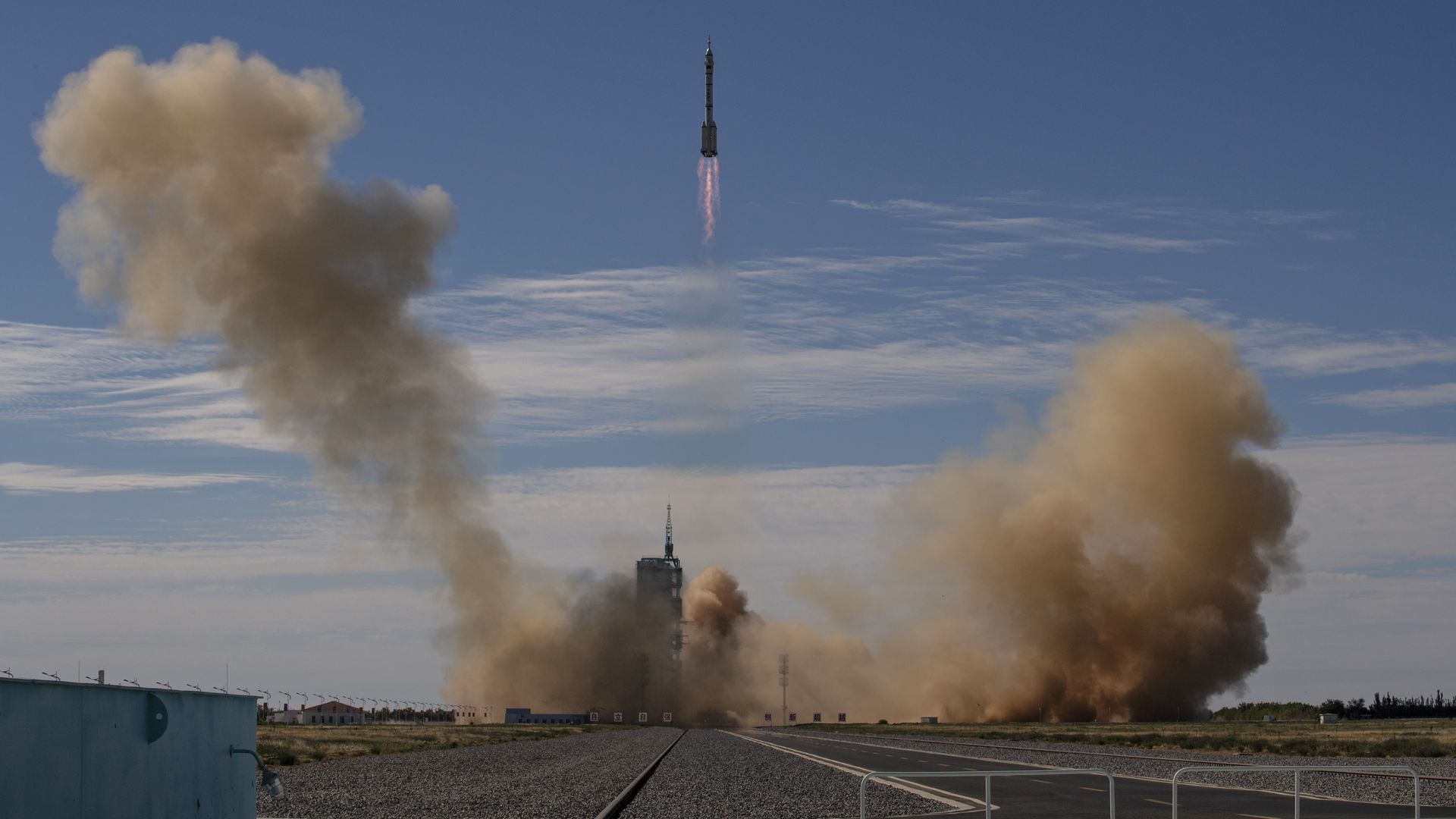Updated Jun 17, 2021 - Science
Chinese astronauts reach new space station for 3-month mission
Add Axios as your preferred source to
see more of our stories on Google.

The manned Shenzhou-12 spacecraft from China's Manned Space Agency onboard the Long March-2F rocket launches at the Jiuquan Satellite Launch Center in Jiuquan, Gansu province, China, on Thursday morning Beijing time. Photo: Kevin Frayer/Getty Images
